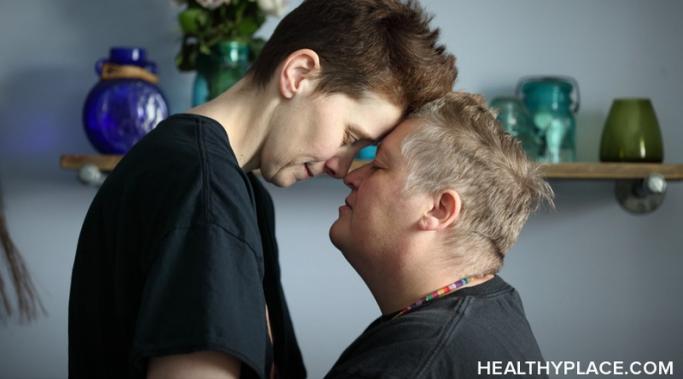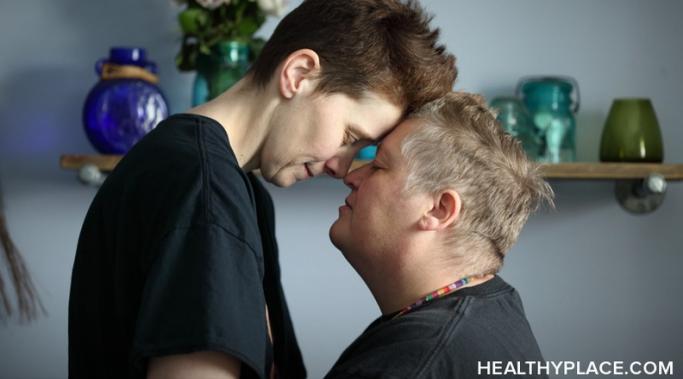Approaching others about their mental health can be an awkward situation, but sometimes it's necessary. A big regret I have about my brother's journey with chronic mental illness is that I didn't raise my concerns about his symptoms sooner. If you're unsure whether or not to have that difficult conversation with a friend or family member, here are some insights I've picked up over the last few years.
Mental Illness Videos
Hyper-fixations are periods of high immersion into something you really like. These periods aren't very long for me, but what I've noticed is my focus and creativity sky-rocket during this time. This can make forming hyper-fixations feel good, which can encourage me to form more, but this is actually harmful to daily life.
I’m Alixzandria Paige, and I’m so excited to join HealthyPlace. I grew up in a big family, and unfortunately, many of my family members have a mental illness. While it has been challenging, my family with mental illnesses have all gotten so much better over time. As for me, I have a psychology degree and use my degree experience to help myself and others overcome mental health issues so that we may live the lives that we deserve.
My family members each have a different supportive style when it comes to my brother's mental illness. In the early days of his depression and anxiety diagnosis, we used to judge each other for these differences -- each of us believed that our approach was the best one. I am looking at supportive styles differently, now.
My name is Nicola Spendlove and I am very excited to be joining the HealthyPlace team as a new author on the "Mental Illness in the Family" blog. I'm going to be writing about my brother's experiences with depression and anxiety and how it has impacted us all.
Recently I was asked how I cope with caring for a partner with mental illness. Do I cope day by day, hour by hour, minute by minute, or does it vary? What a complicated question.
My name is Megan Law, and I am the new author of "Mental Illness in the Family" here at HealthyPlace. I am very grateful for the opportunity to write this blog and to share my stories and experiences on living with family members with mental illness. Mental illness is increasingly prevalent in our society, but it continues to be misunderstood or sometimes even ignored. A significant stigma against those with mental illness still exists. I hope to help spread the message that having a family member diagnosed with mental illness is not the end. There is hope for all involved.
This year, I invite bipolar moms to join me in resolving to meet our own needs in 2017. Instead of focusing on our faults this January, we can instead look past those faults to see the needs they represent. And instead of berating ourselves over that need, discrepancy, or flaw, I want to make 2017 the year we find a way to meet our needs and live healthier lives (Taking Care of Myself is the Best Way to Care for My Family).
Before the new year begins, every mom needs to hear these simple words to preserve her sanity: good job. "Good job" may seem simple and a bit trite, but Christmas has a way of leaving mentally ill mamas strung out, exhausted, and defeated (Stressed Out! Stress, Mental Health, and Our Sense of Control). After all of the efforts spent making Christmas magical for everyone else, the house is a big old mess, the kids are exhausted, and daddy's gone back to work. Mama's left, again, to put it all back together, take down the decorations, and get the family ready for a brand spankin' new year. It all seems a bit impossible. So Mama, before you start undecorating, washing dishes, and folding another load of Christmas pajamas, hear me out. Let's talk about what every mom, mentally ill or not, needs to hear before the new year begins.
Getting the kids back to school can be exciting, but it is important to take care of a mentally ill mom during the back-to-school transition. Moms with mental illness, especially, need take care of themselves in the midst of this huge back-to-school family transition.









